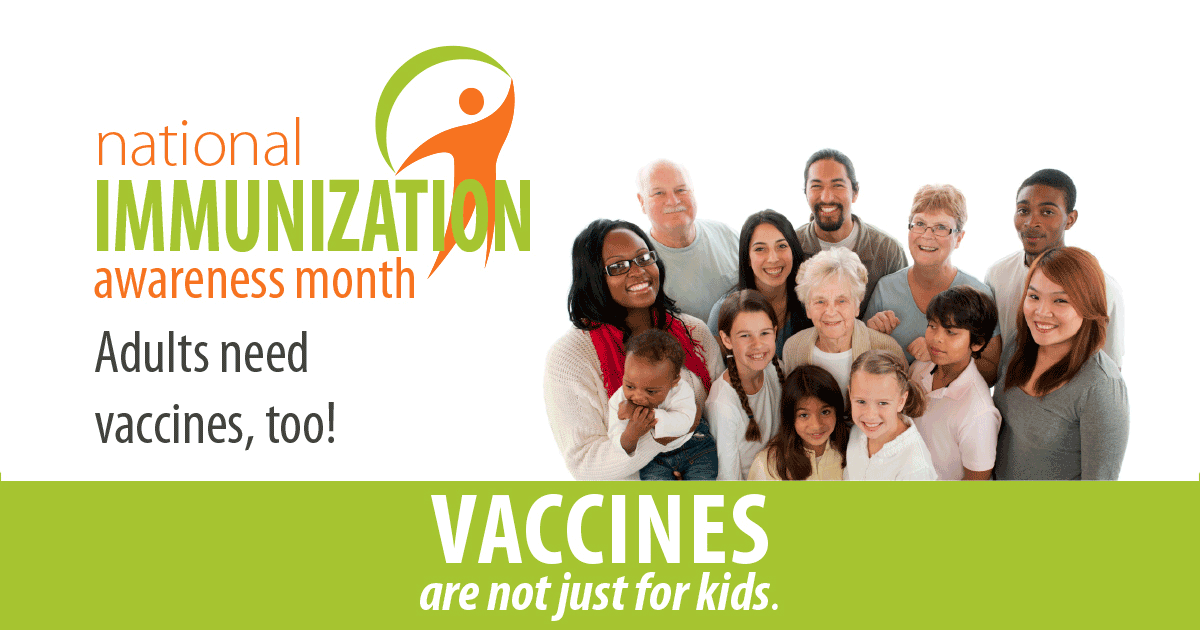Vaccines are Not Just for Kids
You want to pass on certain things like family traditions, a grandmother’s quilt or dad’s love of books—but no one wants to pass on a serious illness. Take charge of your health and help protect those around you by asking about vaccines at your next doctor’s visit.
Vaccinating our children is commonplace in the United States. But many adults don’t know which vaccines they need, and even fewer are fully vaccinated. Every year, thousands of adults in the U.S. become needlessly ill from infectious diseases. Many adults are hospitalized and some even die from diseases that could be prevented by vaccines.
Not only can vaccine-preventable diseases make you very sick, but if you get sick, you may risk spreading certain diseases to others. That’s a risk most of us do not want to take. Babies, older adults and people with weakened immune systems (like those undergoing cancer treatment) are especially vulnerable to infectious diseases. They are also more likely to have severe illness and complications if they do get sick. You can help protect your health and the health of your loved ones by getting your recommended vaccines.
The most common, recommended vaccines for adults include:
- All adults should get an influenza (flu) vaccine each year to protect against seasonal flu. Some people are at high risk of serious flu complications and it is especially important these people get vaccinated. This includes older adults (65 and older), children younger than 5, pregnant women and people with certain long-term medical conditions like asthma, heart disease and diabetes.
- Every adult should get one dose of Tdap vaccine (tetanus, diphtheria and pertussis) if they did not get Tdap as a teen, and then receive a Td (tetanus and diphtheria) booster vaccine every 10 years.
- Adults 50 years and older are recommended to receive the shingles vaccine.
- Adults 65 and older are recommended to receive both pneumococcal vaccines. Some adults younger than 65 years with certain conditions are also recommended to receive one or more pneumococcal vaccinations.
- Adults may need other vaccines (such as hepatitis A, hepatitis B and HPV) depending on their age, occupation, travel, medical conditions, vaccinations they have already received or other considerations.
All adults should talk to their health care professionals to make sure they are up to date on vaccines recommended for them. The specific vaccines adults need is determined by factors such as age, lifestyle, risk conditions, locations of travel and previous vaccines. Most health insurance plans cover the cost of recommended vaccines—a call to your insurance provider can give you the details.

